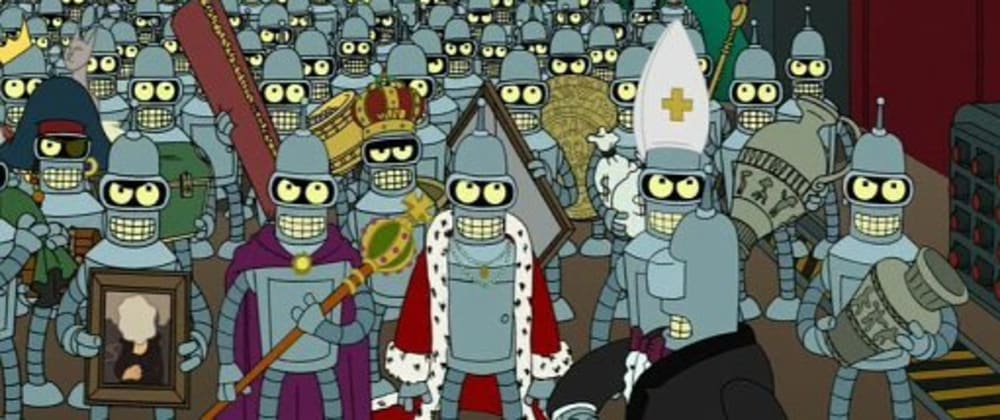Last year the BBC reported that Robot automation will 'take 800 million jobs by 2030'. Lucky for most of the people reading this post, developer jobs are safe for the time being. But what is the world going to look like when most manual jobs are taken by machines? What type of effect will this have on our economy? What will happen to the middle class? Do we need Universal Basic Income?
Over the next five years, we are about to witness the world we live in entirely disrupted by improvements in artificial intelligence (AI) and machine learning. Children today are growing up with AI assistants in their homes (Google Assistant, Siri and Alexa) -- to the point that you might consider their mere presence an extension of co-parenting. As voice and facial recognition continue to evolve, machine learning algorithms are getting smarter. More and more industries are being influenced by AI, and our society as we know it is transforming.
In this article I take a look at the top 3 industries that will suffer the most significant amount of job lost due to AI and automation technology.
Transportation
The transportation industry looks like it will be the first to be completely disrupted by artificial intelligence. In fact, a lot of the impact of AI is already taking place. Uber and Lyft are both working on self-driving technology. GPS navigation software company Waze (which was acquired by Google in 2013) quietly released a new app called CarPool that converts its 50-plus million users into drivers and allows users to commute to work together for a fee. Waymo (formerly the Google self-driving car project) recently reached 5 million miles driven on public roads.
It seems that Tesla has already beaten most other competitors to market with its autopilot feature. Tesla now has over 300 million miles driven on autopilot, and all Tesla vehicles on the road today are only a software update away from fully autonomous driving capability. Tesla is also looking to disrupt the trucking industry with its new autonomous vehicle called the Semi. Walmart says it's already preordered 15 of Tesla's electric/AI-powered tractor trailers.
It is not a matter of if but when these companies can perfect the technology and cut through government red tape.
Think about how many hours of human productivity can be saved when we put an end to mindless driving and commuting through city traffic?
The automation of the ride-hailing economy is not only going to save society time, but it's also going to reduce the cost of transportation drastically. Soon enough, requesting a self-driving vehicle will cost as much as taking the bus, and driving a car is going to be as antiquated as riding a horse and buggy.
Criminal Justice
The next industry disrupted by artificial intelligence is the criminal justice system. Advancements in facial recognition are making the fingerprint obsolete. Tech startups are using AI to automate legal work. Meanwhile, some courts are already using AI to sentence criminals and determine parole eligibility.
But the criminal justice system is the one area where too much innovation could be a terrible thing for society and lead us into a dystopian future if we are not careful. At this year's SXSW, Elon Musk said, "AI is far more dangerous than nukes. Far. So why do we have no regulatory oversight?"
Without proper government regulations of artificial intelligence and machine learning, we are at risk of major disruptions to our democracy:
• Does the government's use of AI require a warrant to search your online data?
• Can AI be used to listen in on American citizens' phone calls without a warrant?
• How can you subpoena an AI algorithm to testify so you can face your accuser in a court of law?
• How do we handle malpractice when AI recommends improper handling of a legal case?
These are just a few of the legal questions raised when introducing autonomous, decision making technology into our criminal justice system.
One potential solution is to keep these government systems open source so that the code can be scrutinized for built-in biases.
In 2016, software used across the country to predict recidivism of people eligible for parole was found to be biased against African Americans. Unfortunately, when your data is biased, it can create biased algorithms. Keeping this type of software open source would allow the public to inspect and improve the algorithms so that they are fair and balanced.
Advertising
Finally, artificial intelligence is going to take targeted/personalized advertising to a whole other level. If you think the Facebook Cambridge Analytica scandal was bad, then you have no idea what's in store in the next decade.
Advertisers are already able to predict what types of ads emotionally impact your purchasing behavior. As time goes on, ads are going to continue to become more tailored to the individual. Imagine Amazon's Alexa slipping sponsored messages into a natural conversation or personalized augmented reality billboard ads that know you by name (think Tom Cruise in Minority Report).
Ads are going to continue to become smarter and more embedded in our daily lives thanks to AI. Machine learning algorithms are building personality profiles on every human being. The amount of data collected by advertisers continues to grow. Related product recommendations, search results and social news feed items are all examples of places where advertisers are embedding smart ads that use AI to target you as an individual consumer.
Slowly, these AI algorithms can learn your behavior, and before you know it, they know you better than you know yourself.
Even today, the impact AI is having on our society cannot be ignored. However, if you want to have a competitive edge and you are willing to prepare for these changes now, there is still plenty of time to be ahead of the curve.







Top comments (1)
We are getting too close to becoming a real life episode of Black Mirror. Kinda scary.